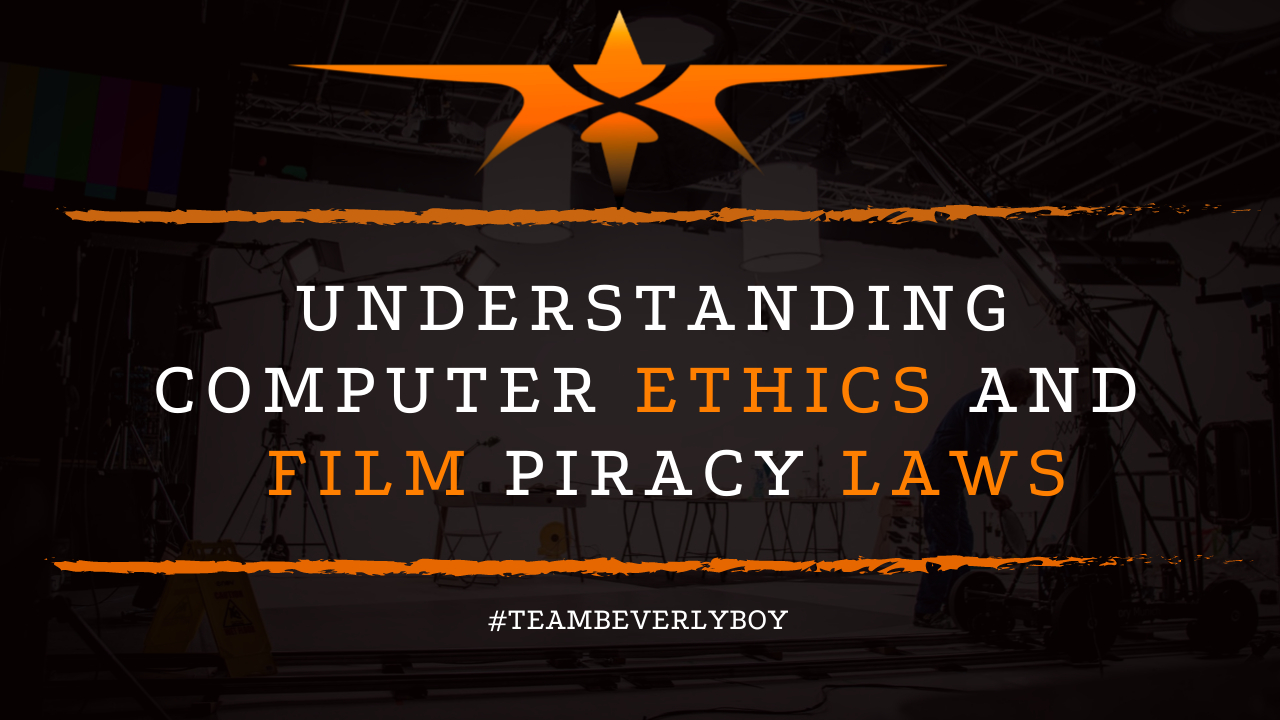
Understanding Computer Ethics and Film Piracy Laws
Is film piracy ethical? The question arises frequently on college campuses, in film study programs, and at home. Another question that comes up frequently surrounds computer ethics and when it is acceptable to download films, software or other products and when it’s not. Information should be free, right? But when does “free information” err on the side of stolen works?

As we look at how computer ethics and film piracy laws impacting the film industry, we seek to answer the common question: Is downloading or online streaming really stealing?
What is Piracy?
Piracy represents the unauthorized use of or reproduction of another’s work such as downloading videos, music, or other works online and using without a license or permission to do so.
Online piracy, particularly the downloading of movies and music that is copyrighted, represents a serious problem for the film and music industry.
Costing upwards of $71B annually for the film industry globally in terms of lost revenue.
Computer Ethics and Film Piracy
What does computer ethics and film piracy have to do with one another? Computer ethics represent the appropriate use of computers and digital programs.
Without stealing or otherwise impeding on the works of others. Viewpoints on piracy approach the issue from conflicting standpoints.
Some think that there is nothing wrong with piracy and that information wants to be free. Thus the freedom of information and expression states that all should have access.
According to this group, people have a right to the information contained within a film and therefore should have the right to copy it.
The Victims
Some think that piracy doesn’t hurt anyone. They fail to recognize the victims.
Including the artists and others behind the works including the distributors that lose revenues when films are pirated rather than purchased.
Some believe that piracy is unethical and that not only is it really NOT a victimless crime, information is NOT free. And the people who create films should have the right to sell them.
Rather than have them stolen. According to this viewpoint, the first amendment does not apply because the work is stolen when piracy occurs.
Is Piracy an Ethical Concern or a Legal Concern?
Studies have found that ethical judgement of online piracy of films and other works is not technically the same as the traditional impact of theft.
While downloading films online without a copyright represents piracy. It does not technically represent theft due to the fact that there is no tangible transport of property.
However, ethically, piracy is wrong! Piracy costs the film industry billions of dollars.
And piracy impacts the filmmakers, talent, cast and crew behind the films that are stolen or otherwise streamed without formal permission.
The Takeaway
Teaching computer ethics and film piracy rules to reduce the impact of pirated content from causing such widespread impacts on the industry is important.
Not only can students gain a lot from understanding the importance behind computer ethics and the appropriate use of licenses and permissions related to filmed content.
Filmmakers gain great insight when they understand the importance of copyright protections, licenses, and permissions, too.


